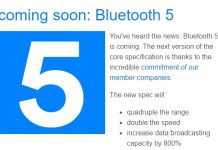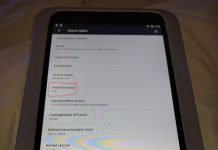 Cory Doctorow has a column in Publishers Weekly expounding on what he calls “Doctorow’s First Law”: "Any time someone puts a lock on something that belongs to you, and won’t give you a key, they’re not doing it for your benefit."
Cory Doctorow has a column in Publishers Weekly expounding on what he calls “Doctorow’s First Law”: "Any time someone puts a lock on something that belongs to you, and won’t give you a key, they’re not doing it for your benefit."
In the column, Doctorow reiterates his experience trying to get Audible to forego restrictive licensing agreements on an audiobook of his novel Makers. They declined to allow him to add a boilerplate to the audiobook explicitly authorizing readers to make fair uses of the work, so he did not publish it through them.
This year, Doctorow approached Macmillan’s CEO John Sargent and CTO Fritz Foy and asked if they would be willing to let him try to place his e-books in some of the major e-book stores without DRM, and with a boilerplate plugging the open e-book versions available on his website. Although Doctorow offers all his books for free, DRM-free download, a number of readers would like to pay him back for the free e-books anyway.
Sargent and Foy gave their blessing, and Doctorow approached Amazon, Apple, Barnes & Noble, Kobo, and Sony with his conditions. Of the results, he writes:
I’m happy to report that Amazon, to its eternal credit, was delighted to offer my e-books without DRM and with the anti-EULA license language, as was Barnes & Noble and Kobo. Why Amazon’s Kindle division was happy to do what its Audible division had categorically rejected is still beyond me, but I’ll take any sign of fairness I can get. I can only hope that Amazon’s other digital divisions catch up with Kindle, and if they do, I’ll be eager to have my audiobooks for sale in the Audible store. Amazon is a retailer that has literally revolutionized my life, my go-to supplier for everything from toilet brushes to used DVDs for my toddler. And in addition to selling my own works, I also sell upwards of 25,000 books a year through Amazon affiliate links in my online book reviews. This makes me a one-man, good-sized independent bookstore, with Amazon doing my fulfillment, payment processing, stocking, etc.
Unfortunately, I had no such luck with Apple or Sony. True to my earlier experience with Apple’s iTunes store, Apple has a mandatory DRM requirement for books offered for sale for the iPad. I know many Apple fans believe that because Steve Jobs penned an open letter decrying DRM that the company must use DRM because they have no choice. But this simply isn’t true. Sony has the same deal.
Doctorow reminds readers that, thanks to the DMCA, it is illegal for even copyright holders to crack the DRM on their own books, or to authorize others to do the same.
At that point, DRM and the laws that protect it stop protecting the wishes of creators and copyright owners, and instead protect the business interests of companies whose sole creative input may be limited to assembling a skinny piece of electronics in a Chinese sweatshop.
Funny that Amazon, with its reputation for doing naughty things like pulling illegally-sold e-books off of their owners’ devices, should turn out to be one of the companies willing to forego DRM on its e-books when Apple is not. Regardless, it is great to hear that Doctorow has managed to place DRM-free e-books with three of the five major vendors.


































One wonders why Amazon did it for Cory but not for Baen…
Amazon’s beef with Baen most likely isn’t DRM, but rather Webscriptions. Amazon’s terms require the book not be *sold* for less elsewhere. And the books in the Webscription bundles are in fact discounted from their single-book price so they can’t ignore this or pretend it’s a different product.
Doctorow’s parallel distribution is free so they dont violate the terms of the contract.
Just a guess, mind you.
I have to admit that I don’t understand this.
Does it mean that I can (or will be able to) buy any(?) Doctorow Kindle title from Amazon and read it w/o any conversion on any Kindle or any Kindle App? Can I read it on any Nook and any B&N App?
Thanks, Don
@Don Lloyd: Yes, you can directly read them on any Kindle or Kindle app. Also on any ebook reader or app that supports Mobipocket format.
To read the *same file* on a Nook or Nook App you’ll have to convert it to a supported format as B&N doesn’t support Mobi format any more than Amazon supports ePub.
@Felix Torres
Thanks. What’s the 2nd most prominant program that supports Mobi format after Amazon? Are some number of Amazon purchases presently downloaded to a Kindle in Mobi format?
Assuming that I have no interest in re-distributing free copies, what benefit(s) might I see?
Thanks, Don
Kindle format *is* Mobi format. So all DRM-free content on the Kindle store is in mobi format. Other vendors also sell DRM-free mobi.
The only difference is the .azw extension (instead of .prc or .mobi) and the DRM.
Mobi format can be read by Mobipocket reader on PCs, PDA, and smartphones and by FBReader on Windows, Linux, and several eink devices. There is also FBReader for android and Java.
The benefits are that you can read it on pretty much anything with a screen; the format is broadly supported and, when DRM-free, can be converted to just about any other format.
I wonder about this report. Apple’s ITC program for adding books to the iBookstore which I use not only allows DRM-free, it’s the default option. Did he go directly to Apple, or through one of the aggregators? DRM-free books from Apple show up in the list view as “Purchased Book” and those with DRM show up as “Protected Book”. You can “View in FInder” a DRM-free book and drag it over to calibre, for example, and it will be viewable and convertable. That’s what I’ve recommended to my readers who want an ePub for other platforms and formats.
It’s nice to see vendors are finally realizing that you can _sell_ ebooks by making it easy to do.
The key part about Amazon is: “Amazon, with its reputation for doing naughty things like pulling illegally-sold e-books off of their owners’ devices” is (and always has been) the word “illegally-sold”. It is a good thing for Amazon to not break the law. They complied with the law clumsily, but they did comply. Some extreme folks screamed that it was wrong, but no, it was just clumsily done.
Regards,
Jack Tingle
The key part about Amazon is… the word “illegally-sold”. It is a good thing for Amazon to not break the law
No, Amazon sold the books illegally, and then they broke the law again trying to cover up for their mistake.
Amazon bought the right to sell the contents of a non-US ebookstore, and imported all those ebooks without paying attention to which ones were legal to sell in the US. When the US copyright owners called them on it, they punished the customers–who hadn’t broken any laws–instead of making a deal with the copyright owners.
They also refunded the buyer’s money. When they discovered the error, they corrected it and made the customers whole. No company can do more than that. They could have done it better, but they complied with the law. If you think no company should ever make an error, you’re going to be an unhappy person. People in companies make mistakes. The requirements in most laws are that, having discovered the mistake, they have to disclose it and make it as right as possible.
Regards,
Jack Tingle
“Amazon, with its reputation for doing naughty things”
Huh? Amazon like any company has made a few mistakes but I think that should hardly warrant a reputation for doing naughty. Especially compared to the other players in digital distribution. As a retailer I find Amazon to be among one of the most customer friendly.
As far as the 1984 issue I think they more than made up for that.
By the way, those looking for free and legal copies of Cory Doctorow’s books check them out on Feedbooks in various formats.